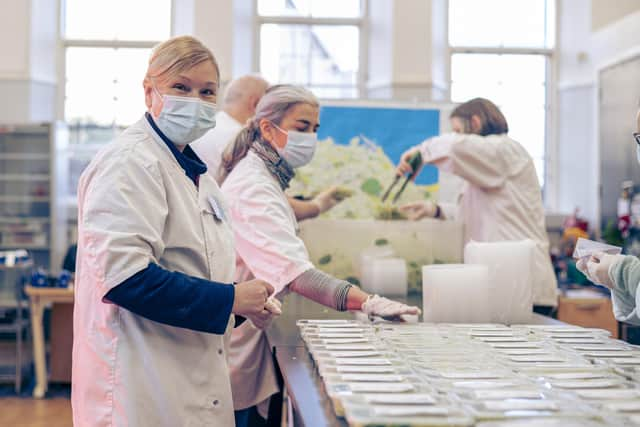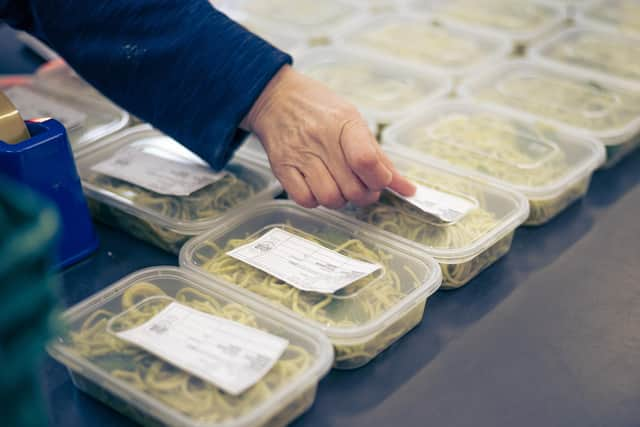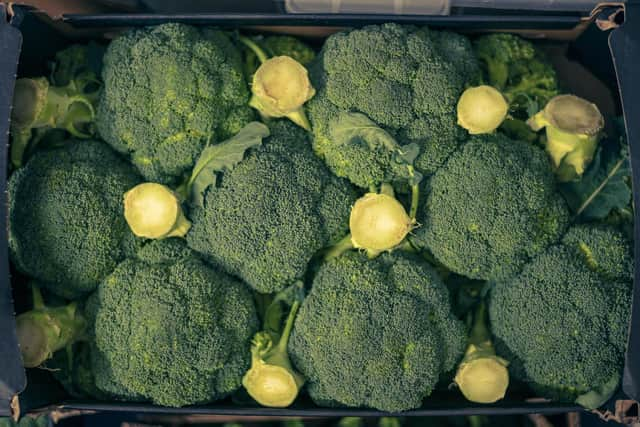We are what we eat: How our broken food system is wrecking lives
Cases of malnutrition in children have risen dramatically over the past few years and obesity is also rocketing.
Two out of three Scottish adults are overweight, with rates in young children suggesting this is set to increase.
Advertisement
Hide AdAdvertisement
Hide AdA diet of calorie-dense, nutrient-deficient foodstuffs has been blamed.
The consequences are clear but the reasons we have arrived at this point are complex – and compounded by the current state of the world.
The Covid-19 pandemic, war in Ukraine, Brexit and extreme weather linked to climate change have all had an impact on the availability of supplies of food and the price we pay for it.
The current cost of living crisis is seeing shocking levels of ordinary people unable to afford to put meals on the table, with use of food banks and other charitable services ballooning.
Scotland and the north of England have the highest levels of food bank use in the UK. The most recent annual figures show almost 200,000 Scots used a food bank in the year up to March 2022, a drop from the year before but considerably higher than pre-pandemic.


Meanwhile, more and more community kitchens have been springing up to help out the worst affected.
Local grocers, butchers, fishmongers and bakers have all but vanished from high streets in most places, while big supermarket chains open up new stores in every available corner.
As a result people are relying ever more on convenience food, with many having never learned to cook.
Advertisement
Hide AdAdvertisement
Hide AdThe likes of Tesco, Sainsbury’s, Asda, Aldi and Lidl have been pocketing record profits since the coronavirus outbreak began.


At the same time farmers who produce the ingredients are struggling to break even.
“If you fix food you fix everything,” according to Mike Innes, head of operations for Empty Kitchens Full Hearts (EKFH), an Edinburgh-based charity providing meals for people struggling to feed themselves.
“Food can be one of the great healers in society but it can also cause quite a lot of society’s ills.
“If you look at the way Scotland feeds itself just now – unhealthy food tends to be the cheapest.


“You can see the impact that is having on our nation’s health as a consequence.”
EKFH was set up in 2020, in response to the pandemic, by a group of furloughed chefs who wanted to use their skills to help others during lockdown. They started out delivering lunch and dinner to 100 people each day, but numbers rocketed to 1,500 at the peak of their work.
What is perhaps unexpected, however, is that restaurants and businesses reopened and the chefs went back to their usual jobs but the charity has continued.
Advertisement
Hide AdAdvertisement
Hide AdWhy? Because there is still a need. More than 650 people are currently registered to receive food deliveries, and the numbers have recently been growing – with around 20 new customers signing up each week.
“We got here because we handed over power to the big supermarkets,” Innes said.
“Where you shop wants to provide you with convenience, and we have fallen into the trap of paying for convenience at the expense of losing skills and knowledge and understanding.